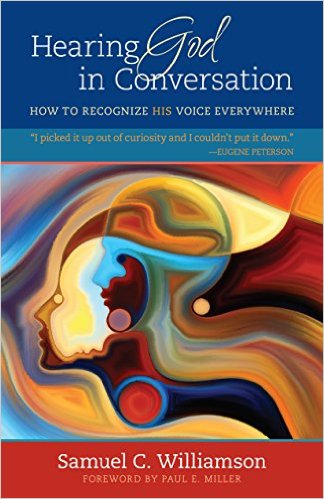|
Meeting Jesus
in Mystery
.
by Sam Williamson
I recently read an article in which the
author rejects any kind of fear of God. He
especially hates the beavers’ descriptions of
Aslan in The Lion, the Witch, and the Wardrobe
by C.S. Lewis:
“I shall feel rather nervous about
meeting a lion” [says Susan].
“That you will, dearie, and no mistake,” said
Mrs Beaver. “If there’s anyone who can appear
before Aslan without their knees knocking,
they’re either braver than most or else just
silly.”
“Then he isn’t safe?” said Lucy.
“Safe?” said Mr Beaver; “don’t you hear what Mrs
Beaver tells you? Who said anything about safe?
‘Course he isn’t safe. But he’s good. He’s the
King, I tell you.”
When the author read those words, he pitied
Christians who believe them. He said, “Aslan made
my feelings of insecurity and insignificance
worse.” Elsewhere he adds: “the idea of God being
dangerous and terrifying to believers is bitter
beyond words.”
He rejects any kind of fear of God as evil,
incompatible with the gospel.
Embracing the Mystery
If God is infinite, his nature must exceed our
limited-wisdom. The spiritual path of a believer
will always push past one seeming paradox to the
next. That was the first divine principle I
learned as a child, the first time I heard him
speak: that God is real,
and I didn’t understand.
The greatest obstacle to our intimacy with God is
when we cling to our own ideas and reject what he
reveals about himself. And God himself says we
should both love and fear him.
Every heresy since the time of Jesus has
emphasized one truth at the expense of another.
Heresies are our refusal to accept the whole
counsel of God’s self-revelation; they flourish
when we say, “I like to think of God as _____, but
I hate to think of him as _____ [fill in the
blanks]. What matters is not what we think of God
as much as what he thinks of us.
Theologians have a word to describe how to hold
two seeming contradictory truths, but G. K.
Chesterton just called it mystery. And he said it
is only in mystery that we meet the real God:
As long as you have mystery you have
health; when you destroy mystery you create
morbidity.
The ordinary man has always been sane because
the ordinary man has always been a mystic. If he
saw two truths that seemed to contradict each
other, he would take the two truths and the
contradiction along with them.
His spiritual sight is stereoscopic, like his
physical sight: he sees two different pictures
at once and yet sees all the better for that.
It is Good to Fear God
Whenever we encounter something bigger than us, we
experience a type of fear. When I see the Milky
Way on a clear night, or I get a glimpse of a
14,000-foot Colorado mountain, or I see a storm on
the ocean, I’m in awe. Awe doesn’t detract from
the experience, it enhances it.
To reject fear of God is to make him like Caspar
the Friendly Ghost, a nice but pathetic, toothless
power. If that god loves me, I’m not particularly
stirred. I don’t know if I even care.
But if the fearful God who judged Egypt loves
me—the one who controls hurricanes, whose holiness
shrivels my pride, and whose love for his people
scares my judgmental self—if that God also loves
me, I am moved beyond words.
God never says the beginning of wisdom is love of
God; he says the beginning of wisdom is fear of
God; but when that fear of God meets and kisses
his love for us, then (and only then) we meet the
real God, the great Lion and Lover.
We need two eyes to know the love of God; one eye
fixed on his astonishing, utter holiness, and with
our other eye, we see his astonishing love for us.
Sam

Sam Williamson has published
numerous articles and has written two books.
He has a blog site, www.beliefsoftheheart.com,
and can be reached at
Sam@BeliefsoftheHeart.com.
Hearing
God in Conversation: How to Recognize
His Voice Everywhere, by Samuel C.
Williamson, published by Kregel
Publications, 2016, available from Amazon
top
photo of lightning storm and seascape
(c) by Givaga at bigstock.com Photo
ID: 179633347
|

